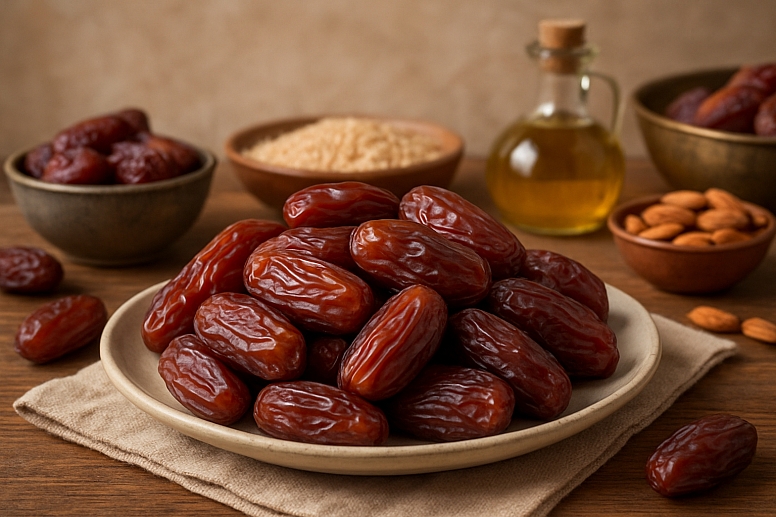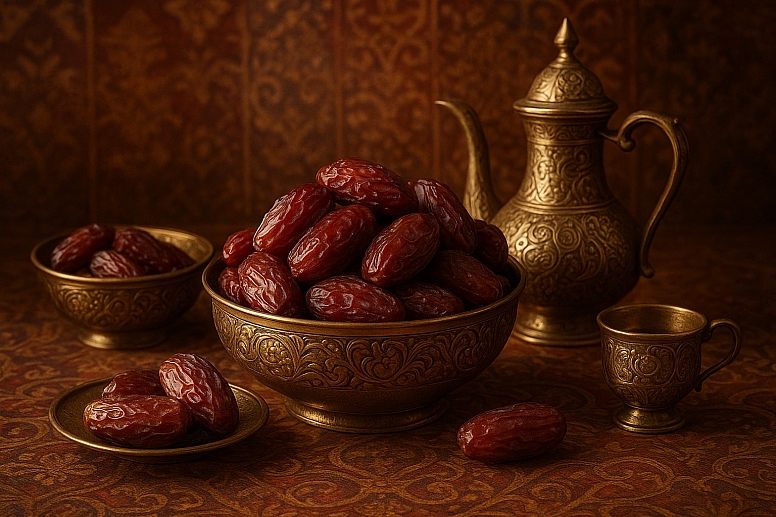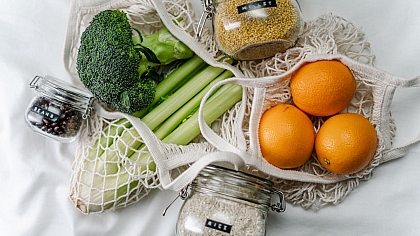
The Health Benefits of Dates in Middle Eastern Kitchens
What You Will Learn
Dates are a nutritious staple in Middle Eastern cuisine. You will find out:
- How dates provide long-lasting energy without processed sugar.
- Why the fiber in dates supports good digestion and gut health.
- The role of dates in promoting heart health.
- How dates contribute to strong bones.
- Easy ways to add more dates to your meals.
More Than Just a Sweet Treat
In many Middle Eastern homes, a bowl of dates sits on the table. This humble fruit is often the first thing eaten to break a fast. But its role goes far beyond tradition. Dates are a powerful food. They offer a natural sweetness and many health advantages.
For centuries, people have used dates as medicine and food. Modern science now confirms what these cultures always knew. This fruit is a nutritional powerhouse. It delivers energy, important minerals, and digestive support.
This guide explores the specific health benefits of dates. It shows why this simple ingredient is so important in Middle Eastern kitchens.
A Natural Source of Energy
Dates are rich in natural sugars like fructose, glucose, and sucrose. Unlike processed white sugar, these sugars come with fiber, vitamins, and minerals. This means they provide a quick source of energy that is also sustained.
- The body easily absorbs the natural sugars, offering a rapid energy boost.
- The fiber content helps slow down sugar absorption. This prevents a sharp "sugar spike" and subsequent crash.
- This makes dates an ideal snack for sustained energy throughout the day, especially before or after physical activity.
Supporting Digestive Health
Digestive health is important for overall well-being. Dates are an excellent source of dietary fiber. Just a small serving contributes significantly to your daily fiber needs.
- Soluble fiber in dates helps slow digestion and can help manage blood sugar levels.
- Insoluble fiber adds bulk to stool. This helps food move through the digestive system and promotes regularity, preventing constipation.
- Some studies suggest dates may support the growth of beneficial gut bacteria, which is crucial for a healthy microbiome.
Nutrients for Heart and Bones
The benefits of dates extend to two critical body systems: the cardiovascular and skeletal systems.
Heart Health:
- Dates contain potassium, a mineral that helps manage blood pressure by counteracting the effects of sodium.
- The fiber in dates can help lower levels of LDL (often called "bad" cholesterol).
- They are free of cholesterol and contain very little fat.
Bone Health:
- Dates provide several minerals vital for keeping bones strong, including calcium, phosphorus, magnesium, and potassium.
- While not a primary source, regularly eating dates contributes to your overall intake of these bone-building nutrients.
Key Nutrients in Dates
This table shows the valuable vitamins and minerals found in dates and their primary roles in the body.
| Nutrient | Primary Health Benefit |
|---|---|
| Fiber | Supports digestion and gut health. |
| Potassium | Aids in maintaining healthy blood pressure. |
| Magnesium | Important for muscle, nerve, and bone function. |
| Copper | Helps with iron absorption and energy production. |
| Manganese | Supports bone development and metabolism. |
| Vitamin B6 | Aids in brain health and converting food to energy. |
Simple Ways to Eat More Dates

Incorporating dates into your diet is easy and delicious. Middle Eastern cuisine offers many examples.
- Eat them whole: Enjoy 2-3 dates as a snack. Their natural sweetness satisfies a sugar craving.
- Add to smoothies: Blend one or two pitted dates into a smoothie for a natural sweetener.
- Stuff them: A classic preparation is dates stuffed with nuts like almonds or walnuts for a balanced snack.
- Use in cooking: Chop dates and add them to oatmeal, yogurt, salads, or stews. They add a rich, caramel-like sweetness to tagines and rice dishes like Madjoola.
- Make date paste: Blend pitted dates with a little water to create a paste. Use this as a natural sugar substitute in baking, sauces, and dressings.
Your Questions About Dates, Answered
Are dates too high in sugar? Dates are high in natural sugars, but they also contain fiber and nutrients. This makes them a healthier choice than foods with added sugars. It is best to enjoy them in moderation as part of a balanced diet.
How many dates should I eat in a day? A typical serving size is about 3-4 dates. This provides a good amount of nutrients and fiber without overconsuming sugars.
Do dates help with anemia? Dates contain some iron and copper, which both support red blood cell production. While they are not a cure for anaemia, they can contribute to a diet that supports healthy iron levels.
What is the best type of date to eat? There are many varieties, like Medjool, Deglet Noor, and Barhi. Medjool dates are larger, softer, and very sweet. Deglet Noor dates are smaller with a firmer texture and lighter color. The "best" type is a matter of personal preference for taste and texture.
Bring an Ancient Superfood to Your Table
Dates are a true superfood. They have been nourishing people for thousands of years. Their sweet taste makes them a perfect healthy dessert. Their nutritional profile supports your body in multiple ways.
Try keeping a container of dates in your kitchen. Use them to create energy bites, sweeten your breakfast, or simply enjoy as a quick snack. Experience the natural benefits of this gift from the Middle Eastern kitchen.












